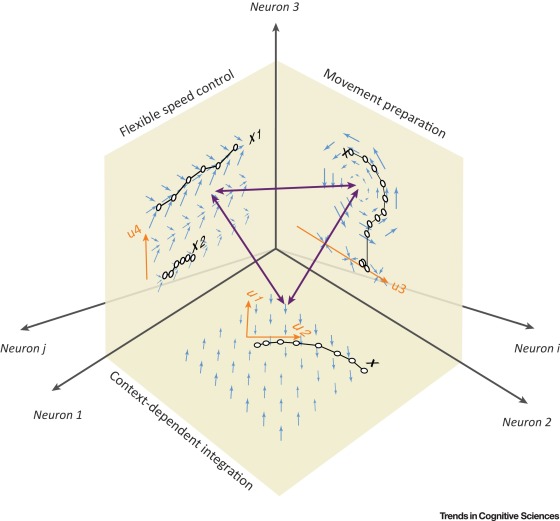Seth W. Egger
How does the brain allow for complex behaviors and cognition? How can we prepare different movements, integrate information, or flexibly decide based on context? A fundemental idea is that the internal workings of the brain perform computations that allow behavioral flexibility to be achieved. But how are these computations implemented? One framework for approaching this problem is to think of the brain as a dynamical system – much like the position of a boat in the tides will determine its course, the state of the brain at any momment will determine how that state changes over time. One momment might require a specific form of dynamics to integrate sensory information, while another momment might require different dynamics to prepare the correct movement.

From Remington, Egger, et. al. (2018)
Under this framework, the key to understanding how the brain implements computations is to understand how it controls the evolution of activity through different internal states. By developing prinicples by which the underlying dynamical system is harnessed to perform specific computations, we might someday understand how cognition and complex behavior arise. The main goal of my research is to develop models and perform experiments that allow us to infer these priniciples.